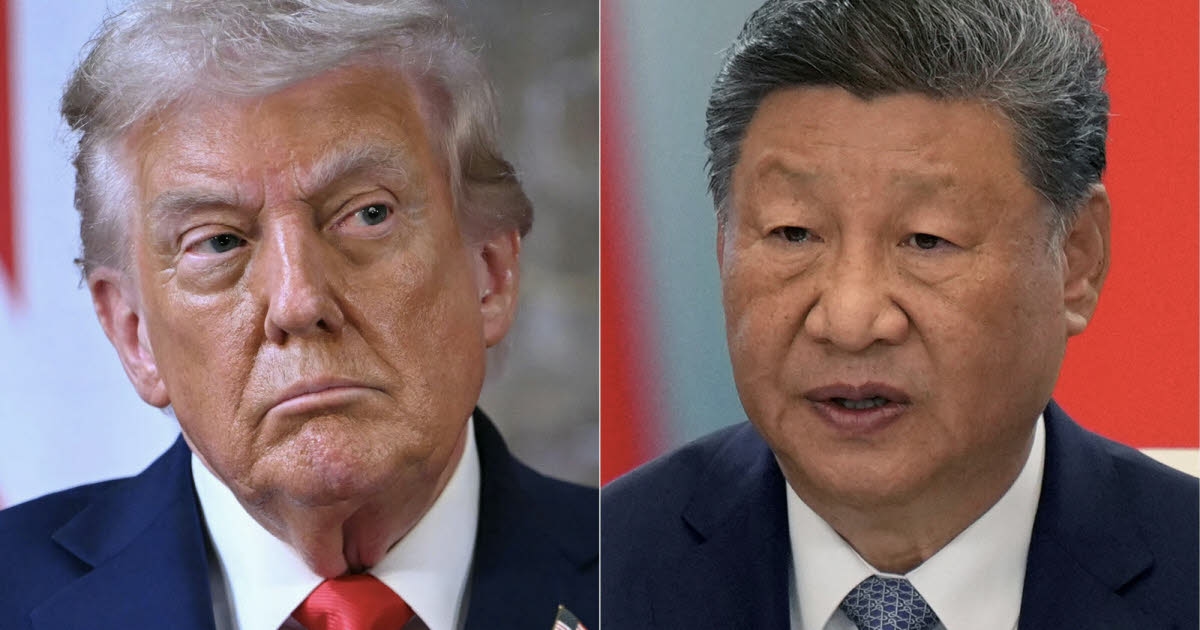Analysis. Trade war: Are Donald Trump and Xi Jinping ready for a fragile truce agreement?

They haven't met since June 2019 and Donald Trump 's first term: the American president and his Chinese counterpart Xi Jinping are scheduled to meet this Thursday in Busan, South Korea, for a meeting that is both highly anticipated and viewed with apprehension. Donald Trump said he expects an "excellent meeting" with Xi Jinping, while Beijing has promised "in-depth discussions" on "major" issues, raising hopes for a truce in the brutal trade war between the two powers, which began with the escalating tariffs initiated by Donald Trump on February 1st .
“The question is whether they will reach an agreement on all the trade disputes that currently divide them—and goodness knows there are many—that is truly the priority of this meeting,” explains Françoise Nicolas, a China specialist at the French Institute of International Relations. She nevertheless emphasizes the already significant “symbolic aspect” of a meeting that had been “long uncertain” between the leaders of the world’s two largest economies.
"Donald Trump will say it's a fantastic deal."Donald Trump and other US officials are approaching this meeting in South Korea—on the sidelines of the Asia-Pacific Economic Cooperation (APEC) summit, which brings together 21 countries in the region—convinced that Xi Jinping will offer them progress on two issues that have stalled progress since the increase in US tariffs: sales of American soybeans and access to Chinese rare earth elements, essential for American industry. The Chinese "will likely commit to buying more soybeans from the United States," predicts Françoise Nicolas. Beijing is also expected to postpone its restrictions on rare earth exports , which had forced Washington to abandon a more direct confrontation. "They will also try to reach an agreement on fentanyl [a particularly addictive opioid, editor's note] so that fewer products are sent to Mexico, which then make their way to the United States." All this in exchange for a concrete and lasting reduction in US tariffs on Chinese goods.
While negotiators from Beijing and Washington claim to have agreed on a "framework" for a trade deal, it remains to be seen whether Donald Trump and Xi Jinping will actually finalize a truce in their trade war, which has sent markets plummeting and disrupted production chains. "Whatever happens, Donald Trump will say it's great, a fantastic agreement, using all the superlatives he knows how to employ. But the reality is that China is in a somewhat stronger position vis-à-vis the United States. Trump's problem is that he barks a lot, but in reality, he bites very little," analyzes Françoise Nicolas. "If we look at the beginning of the year and the threats he made against China, he was going to impose absolutely diabolical tariffs. And then, ultimately, it was postponed, there were constant waivers."
Taiwan and Ukraine in the backgroundBefore the meeting, the American president clarified that he was "not sure" the sensitive issue of Taiwan, an island claimed by Beijing, would be addressed. "It's obviously central to the relationship between China and the United States , but it won't be the first thing discussed," Françoise Nicolas believes. "They'll talk about trade, and then, perhaps, this issue will be raised. But in my opinion, it's not the main focus right now."
The war in Ukraine, however, is expected to be on the agenda, as Donald Trump has repeatedly expressed his frustration with China's indirect support for Russia. As for trade issues, a truce would halt the deteriorating relationship between the two powers, but it certainly wouldn't end their strategic rivalry.
Le Progres





